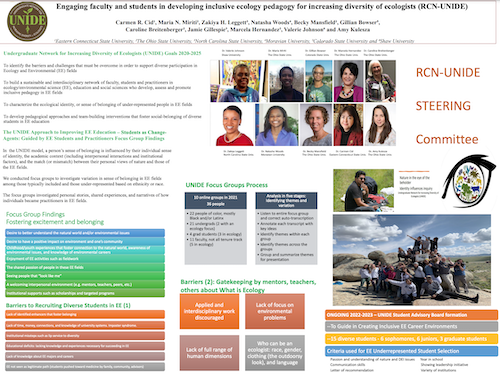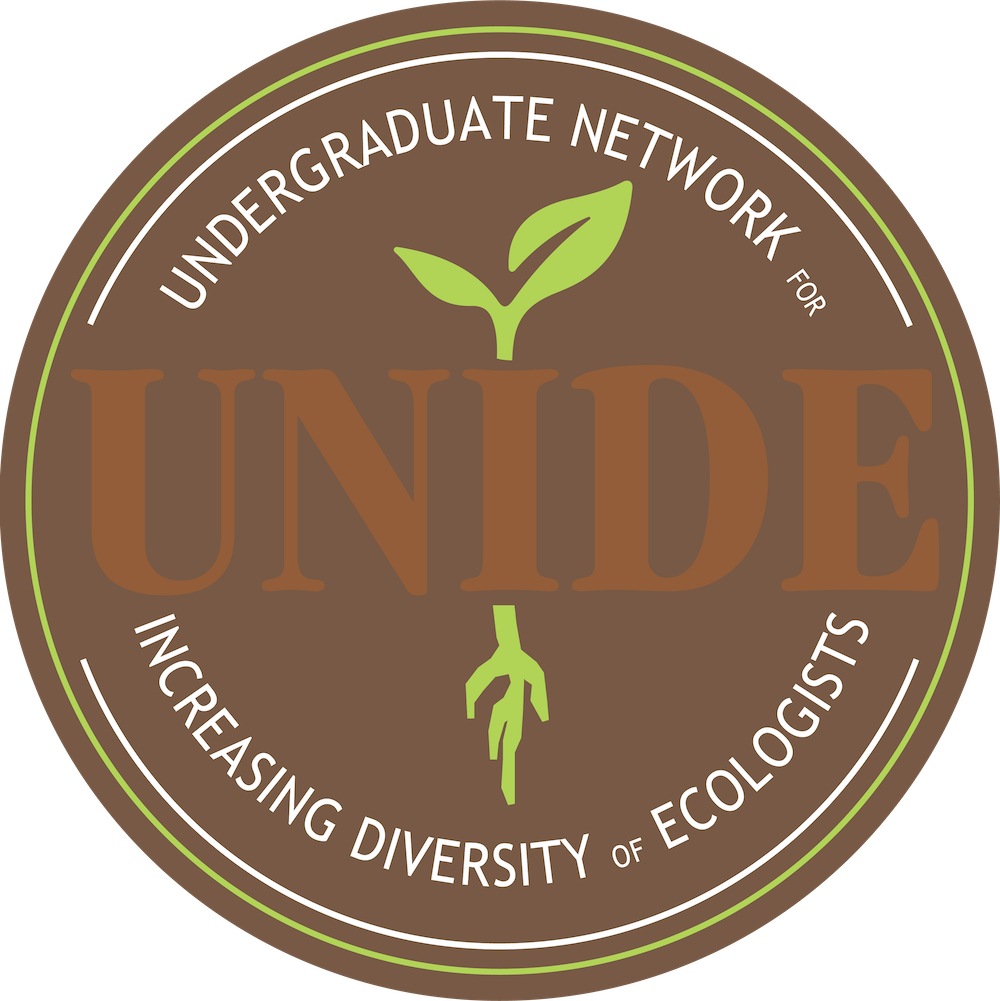UNIDE - The Undergraduate Network for Increasing Diversity of Ecologists (RCN-UBE Introduction)
Author(s): Maria Miriti1, Zakiya Leggett2, Natasha Woods3, Becky Mansfield1, Carmen Cid4
1. Ohio State University 2. North Carolina State University 3. Moravian University 4. Eastern Connecticut State University
237 total view(s), 64 download(s)
Description
The network proposes to identify culturally value-laden concepts that are foundational in ecology and environmental science; to develop evidence-based strategies to improve inclusion in culturally or ethnically lopsided environments; to assess the relative impact of color-blind compared to “identity-safe” teaching interventions at the university level; and to develop and promote pedagogy that promotes social-belonging in support of greater inclusiveness in EE education. Activities of this network include: development of inclusive, culturally sensitive teaching practices that are based on evidence-based pedagogical models; Investigation of multi-disciplinary interventions such as service-learning modules, or participatory action strategies that can foster broad interest in ecology and environmental science; development of tools to assess the impact of teaching interventions in nurturing cultural sensitivity; development of tools to assess the efficacy of culturally sensitive teaching interventions in promoting broad participation in ecology and environmental education.
At the university level, many STEM instructors have been trained in an environment that values research more than pedagogy. Social scientists possess the training to assess the relationship among values embedded in scientific disciplines. A network of diverse EE practitioners, social scientists and education scholars can develop inclusive, culturally responsive interventions more effectively than any group could do in isolation. By engaging students and practitioners from diverse backgrounds, the broader impacts of this work include a network that can incorporate the authentic, lived experiences of underrepresented communities to develop effective undergraduate classroom approaches to increase recruitment and retention of URM students into ecological and environmental career paths. The results of the network’s efforts will inform the need for improving how we integrate the human dimension into undergraduate ecology education.

Developing Inclusive Ecology Pedagogy Poster
Ways to learn more:
-
Our upcoming symposium at ESA Acts of survival: Working to change the unacceptable disparities in ecological participation
-
Miriti, M. N., Rawson, A. J., Mansfield, B. (2023). The history of natural history and race: Decolonizing human dimensions of ecology. Ecological Applications, 33(1), e2748.
-
Woods, N. N., Leggett, Z. H., & Miriti, M. N. (2022). The intersections of identity and persistence for retention in ecology and environmental biology with personal narratives from Black women. Journal of Geoscience Education, 1-12.
Ways to get involved:
- If you are interested in learning more and participating please email The UNIDE Project.
- Follow this link to subscribe to our newsletter
Notes
This document was updated in May 2023. Please see our web site for additional information.
Cite this work
Researchers should cite this work as follows:
- Miriti, M., Leggett, Z., Woods, N., Mansfield, B., Cid, C. (2023). UNIDE - The Undergraduate Network for Increasing Diversity of Ecologists (RCN-UBE Introduction). RCN-UBE Community, QUBES Educational Resources. doi:10.25334/W5YW-NE52


 RCN-UBE #2018939
RCN-UBE #2018939